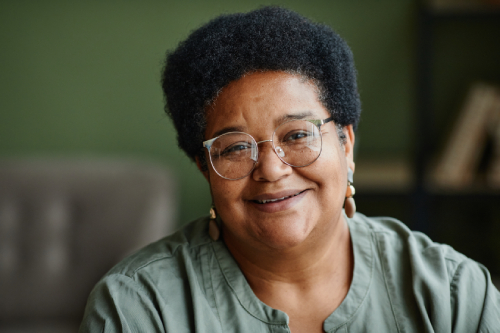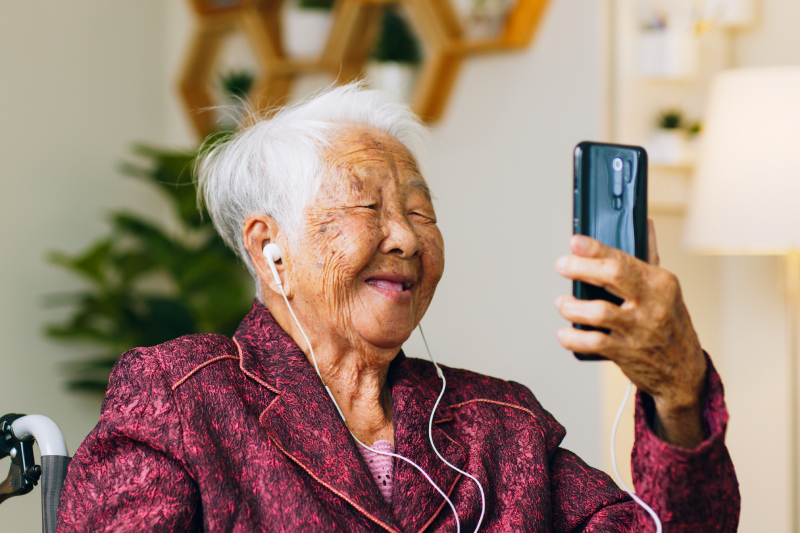Getting through to your GP shouldn't
be this hard.
EMMA is AI reception at GP surgeries. She answers every call instantly—no hold music, no queues, no trying again at 8am. Discuss private matters without judgment. Speak in your language. Get help immediately. Surgeries across the UK already have it. If your surgery doesn't have it yet, tell them you want it.
Tell your surgery you want EMMA
Tell your surgery you want EMMA.
Your voice, Your health, better care

No language barriers
Maria needed to book a diabetes check-up but wasn't confident explaining her symptoms in English. EMMA spoke to her in Portuguese, understood exactly what she needed, and got her the right appointment—no confusion, no frustration, no feeling lost in translation.

Private when it matters

Through on the first try
Already helping
patients across the UK


Patients First
INSTANT
No hold music. No queue announcements. No calling back later. EMMA answers the moment you ring—every single time. Getting through to your surgery is finally as easy as it should be. No more frustration.
PRIVATE
Discussing something sensitive? EMMA creates a judgment-free space where you can share health details openly and honestly. No embarrassment. No rushed explanations. Just the information your doctor needs to care for you.
CLEAR
EMMA speaks your language—literally. Whether English is your first language or your fifth, you'll be understood and helped every time. Clear communication means better care. No confusion. No barriers.
FAST
Get what you need and get on with your day. No 15-minute hold times. No repeating yourself multiple times. EMMA handles your request efficiently and respectfully, so you're not stuck on the phone unnecessarily.
RELIABLE
Same warm, professional experience every time you call. No good days or bad days. No wondering which receptionist will answer. Just consistent, respectful care that makes you feel valued as a patient.
AVAILABLE
Call when it works for you—morning rush, lunchtime, or afternoon. EMMA handles hundreds of calls simultaneously, so you never hear a busy signal. No more trying again and again to get through.

Your questions
Everything you need to know about QuantumLoopAi and EMMA
EMMA transfers you immediately. You always have access to a human when you need one. The choice is yours.
No. EMMA gives you complete privacy over the phone. No awkward conversations. No judgment. No other patients' hearing. Just share what you need to share—privately and openly.
Yes. NHS-approved security. Your data stays protected. EMMA meets the same strict standards as your GP surgery's other systems.
EMMA speaks all major NHS languages and understands different accents. If there's ever confusion, she transfers you to a person immediately.
EMMA recognises emergencies instantly. She'll direct you to call 999 or 111 immediately, or transfer you to the surgery staff if appropriate. Your safety comes first.
Not at all. Just call your surgery like normal. EMMA answers. You talk. That's it. No app. No buttons. No technology to learn.
They should. If they don't, tell them you want it. Better access starts when patients speak up. Your voice makes the difference.
Tell your surgery you want EMMA.
Takes 30 seconds. We'll send your request directly to your surgery on your behalf.
I got through to my GP straight away for the first time ever. It just worked no hold music, no stress.
Sarah L., Patient
EMMA helps every patient get heard
Your voice matters.
Let your surgery know you want faster, easier access to care. Your request helps improve how quickly you and other patients get the care you need—make your voice heard today.

Frequently Asked Questions
Everything you need to know about QuantumLoopAi and EMMA
Most GP surgeries get hundreds of calls every single day, but the phone system can only handle so many at once. When everyone calls at 8am trying to book that day's appointments, the lines get completely overwhelmed. You end up hearing the engaged tone, or you're stuck in a queue that seems to go nowhere, or the call just rings out.
It's not that your surgery doesn't care. Receptionists are working flat out, but they can physically only take one call at a time. If you're the 50th person trying to get through that morning, you're going to be waiting. A lot of people give up after trying 10 or 15 times, which means they don't get the care they need when they need it.
NHS surgeries have been solving this with AI reception since 2023. EMMA, the first DTAC-certified AI reception platform, picks up every call the second it comes through. No queue. No busy signal. She handles hundreds of calls simultaneously, speaks whatever language you're comfortable with, and maintains complete privacy. Practices using EMMA report 81% improvement in patient access scores and dramatically reduced reception costs.
If your surgery uses AI reception, you'll get through instantly. If they don't have it yet, you can request it. Many practices implemented EMMA after patients asked for better phone access.
AI reception answers your calls just like a receptionist would, except it picks up instantly and can handle hundreds of patients at the same time. When you ring your surgery, you get a human-sounding voice that understands what you need and either books your appointment, takes your details, or connects you to the right person.
EMMA is the first DTAC-certified AI reception built for the NHS. She speaks naturally, understands context, and works directly with your surgery's booking system. If you need an appointment, she checks availability and books it while you're on the call. If you have a prescription query, she captures the details and routes them to the pharmacy team. If it's something urgent, she connects you to a GP or nurse straight away.
The technology meets NHS security standards for handling patient information. Your conversation is private. Your data stays protected. The system integrates with tools surgeries already use, so nothing gets lost or confused between the phone call and your medical record.
Patients usually can't tell they're speaking to AI unless someone tells them. It sounds natural, responds appropriately, and doesn't make you repeat yourself or navigate through endless menu options. You just explain what you need and get sorted.
Practices using EMMA report significant improvements in patient access scores and massive reductions in missed calls. If your surgery has it, you'll notice you actually get through when you ring.
AI reception systems built for the NHS meet the same strict security standards as everything else your surgery uses. EMMA, the first DTAC-certified AI reception platform, follows NHS data protection requirements and handles your information the same way a receptionist would.
When you call, your conversation stays between you and your surgery. The system encrypts everything and stores it securely on NHS-approved servers in the UK. Nothing gets shared with third parties. Nothing goes overseas. Your medical details are protected under the same regulations that cover your GP records, prescriptions, and test results.
The AI doesn't make medical decisions or diagnose conditions. It captures what you tell it accurately and passes that information to the right person at your surgery. If you're calling about chest pain, it routes you to urgent care immediately. If you need a repeat prescription, it takes the details and sends them to the pharmacy team. The technology knows what it can handle and what needs a human.
Patients often find it easier to share sensitive information over the phone with AI than at the reception desk where other people might overhear. There's no judgment, no awkward pauses, and complete privacy. You can explain symptoms or concerns in your own words without feeling rushed or embarrassed.
Surgeries using AI reception are regularly audited for data security and patient safety, just like they are for everything else they do. If your practice has implemented it, they've already confirmed it meets NHS standards.
You can speak to someone on the reception team whenever you want. AI reception handles the initial call, but you're never stuck with it if you need human help.
If you ask to speak to someone directly, you get transferred straight away. If your question is complex or needs medical judgment, the system routes you to the right person. If it's an emergency, you get urgent help immediately.
The transfer happens smoothly. You don't get put back in a queue or lose your place. The receptionist or nurse who picks up already has the context of what you've said, so you're not starting from scratch and repeating yourself. That's actually one of the advantages over traditional phone systems where you might explain your situation three times to different people.
Most patients find they don't need to escalate because AI reception handles their request completely. Booking appointments, updating details, ordering prescriptions, or getting information about services all happens during that first call. But when you do need a person, you get one.
The system supports your surgery's team rather than replacing them. Receptionists focus on patients who walk through the door and calls that genuinely need human expertise. You still have full access to them when it matters.
Practices using AI reception report that staff actually have more time for meaningful patient conversations because they're not overwhelmed by hundreds of routine calls every morning.
AI reception handles most of the reasons you'd normally call your surgery. Requesting appointments, ordering repeat prescriptions, updating your contact details, asking about test results, or checking opening hours all get sorted during your call.
If you need to see a GP, the system captures your request with all the details and passes it straight to your surgery team who then book you in. If you're calling about something that can be handled by a pharmacist or practice nurse, it routes the information appropriately. If you have a question about a service your surgery offers, you get an answer straight away.
The technology understands context, so you can explain things in your own words. You don't need to know the exact name of a service or navigate through menu options. Just say what you need and the system captures it accurately for your surgery.
What it doesn't do is make medical decisions or give clinical advice. If you describe symptoms that need urgent attention, it connects you to someone immediately or directs you to call 999 or 111. If your situation is complex and needs medical judgment, you get transferred to a GP or nurse. The system recognizes its limits.
Practices using AI reception report that information gets captured completely and accurately on the first call. Patients aren't bouncing between voicemail, callbacks, and multiple conversations. You call once, explain what you need, and your surgery has everything they need to help you.
The main difference patients notice is getting through instantly and not having to repeat yourself multiple times.
AI reception speaks all the major languages used by NHS patients. You can have your entire conversation in your preferred language without needing to switch to English or bring someone to translate for you.
The system recognizes what language you're speaking and responds in that language. If you're more comfortable explaining your health concern in Polish, Urdu, Punjabi, Romanian, or any other widely spoken language in your community, you can. The technology understands context and medical terminology across languages, so nothing gets lost in translation.
This is particularly helpful when you're trying to explain symptoms or medical history. You can be specific and detailed in your own language rather than struggling to find the right English words or worrying that you're not being clear enough. The information gets captured accurately and passed to your surgery in a format they can work with.
Patients who speak English as a second language often find AI reception less stressful than speaking to a receptionist. There's no pressure to speak faster, no feeling of holding up the queue, and no concern about being misunderstood. You can take your time and explain things properly.
Different accents aren't a problem either. The technology is trained on how people actually speak, not just standard pronunciation. Whether you have a strong regional accent or speak with an accent from another country, the system understands you.
Practices using AI reception report that patients from diverse linguistic backgrounds access care more easily because language barriers have been removed. Your surgery becomes genuinely accessible regardless of which language you speak at home.
No. If your surgery uses AI reception, there's no cost to you as a patient. You call your surgery exactly as you always have, and the service is included as part of your NHS care.
The surgery covers the cost of implementing and running the system, just like they pay for their phone lines, computer systems, and staff. From your perspective, nothing changes except that you get through faster and don't wait in queues anymore.
Some patients worry that AI technology means their surgery is cutting corners or going cheap, but it's actually the opposite. Practices using AI reception invest in it specifically to improve patient access and reduce the burden on their teams. The cost per call ends up being significantly lower than traditional staffing, which means surgeries can redirect those resources into patient care instead.
You won't be charged for calls, you don't need to download an app or create an account, and you don't need any special equipment. Just ring your surgery's normal number from any phone and the system picks up. It works for landlines, mobiles, and even payphones if anyone still uses those.
The technology is funded by the surgery as part of their operational budget. Whether they're using NHS funding, efficiency savings, or other resources, that's between them and their budget managers. You just benefit from faster access and shorter wait times without paying anything extra.
If you're calling from abroad or using international minutes, your phone provider might charge you as they normally would for any UK call, but the surgery itself doesn't add any fees.
You don't need any technical skills to use AI reception. You just call your surgery like you always have and talk normally. There's nothing to download, no account to set up, no buttons to press, and no complicated menus to navigate through.
When the call picks up, you hear a voice that sounds like a receptionist. You explain what you need in your own words, exactly as you would to a person. The system understands natural conversation, so you can say something like "I need to see the doctor about my knee" rather than having to phrase it in any particular way.
If you pause or need a moment to think, that's fine. If you need to repeat something or explain it differently, you can. The technology follows the flow of normal conversation rather than rushing you or making you fit into rigid options. You're never battling against recorded messages or trying to remember which number to press for which service.
Many older patients who struggle with smartphone apps or online booking systems find AI reception much easier because it's just a phone call. You use the same phone you've always used, dial the same number you've always dialed, and talk like you normally would. Nothing changes from your end except that someone picks up immediately.
Practices using AI reception report that elderly patients and those uncomfortable with digital technology adapt to it instantly because there's nothing new to learn. You're already an expert at making phone calls and having conversations. That's all you need.
If you're worried about it, try it once. Most patients realise within the first 30 seconds that it's simpler than the old system, not more complicated.
Your call gets answered within three rings. No waiting. No hold music. No ringing endlessly hoping someone picks up. The system is always available the second you need it.
Most calls are handled completely in under three minutes from the moment you dial. You get through instantly, explain what you need, and the system captures everything accurately. No callbacks, no having to ring again later, no being told someone will get back to you.
Compare that to the old system where you might spend 15 minutes redialing before you even get through, then another 10 minutes on hold, then several more minutes explaining your situation. With AI reception, the entire process happens in one go.
You don't get rushed either. If you need time to explain symptoms or find information like your medication name, that's fine. The technology adapts to your pace rather than pushing you through as quickly as possible because there's a queue building up behind you.
Practices using AI reception report that patients appreciate the combination of speed and not feeling hurried. You get efficient service without the stress of worrying that you're taking too long or holding other people up.
The time saving matters most when you're unwell or calling from work. Getting sorted in two or three minutes instead of half an hour makes a real difference to your day. You're not stuck on hold when you should be resting or trying to fit a phone call into your lunch break.
You have several ways to push for better phone access at your surgery. The more channels you use and the more people who join you, the faster change happens.
Direct to your surgery: Mention it to your practice manager when you're there for an appointment. Send them an email. Fill out their patient feedback form. Be specific about what's not working. Tell them how many times you have to redial, how long you wait on hold, or when you couldn't get through at all. Reference that other surgeries already use AI reception successfully and it's transformed their phone access.
Use our form: Fill out the request form on this page and we'll send a message to your surgery on your behalf explaining that you want better phone access. It takes 30 seconds and your surgery gets a formal request they can't ignore. The more patients who submit it, the stronger the case becomes.
Contact your local ICB: Your Integrated Care Board oversees NHS services in your area. They care about patient access across all surgeries. Email them or attend their public meetings. Tell them your surgery's phone system is failing patients and other practices have solved this with AI reception. ICBs have influence over practice funding and priorities.
Raise it with your MP: Your Member of Parliament represents you on NHS issues. Email them or book a surgery appointment. Explain that you can't access your GP because the phone system doesn't work. MPs raise constituent concerns with health ministers and local NHS leadership. They're particularly responsive when multiple constituents contact them about the same issue.
Tell your local councillors: Councillors sit on health scrutiny committees and have connections to NHS decision makers. They want to hear about services that aren't working in their ward. A short email explaining your experience gets their attention.
Bring others with you: Talk to family, friends, and neighbours who use the same surgery. If they're having the same problems, get them to submit the form, email the practice manager, contact the ICB, or write to the MP. Five patients requesting change is interesting. Fifty patients demanding it is impossible to ignore.
Reference NHS patient surveys: When your surgery sends out their annual patient survey, mention phone access in the comments. Those surveys are public and affect the practice's reputation. Poor scores on access get noticed by NHS leadership.
Practices implemented AI reception because patients pushed for it. Your surgery won't change unless they know the current system is failing you. Make noise. Be persistent. Bring other patients along. Change happens when enough people refuse to accept the status quo.